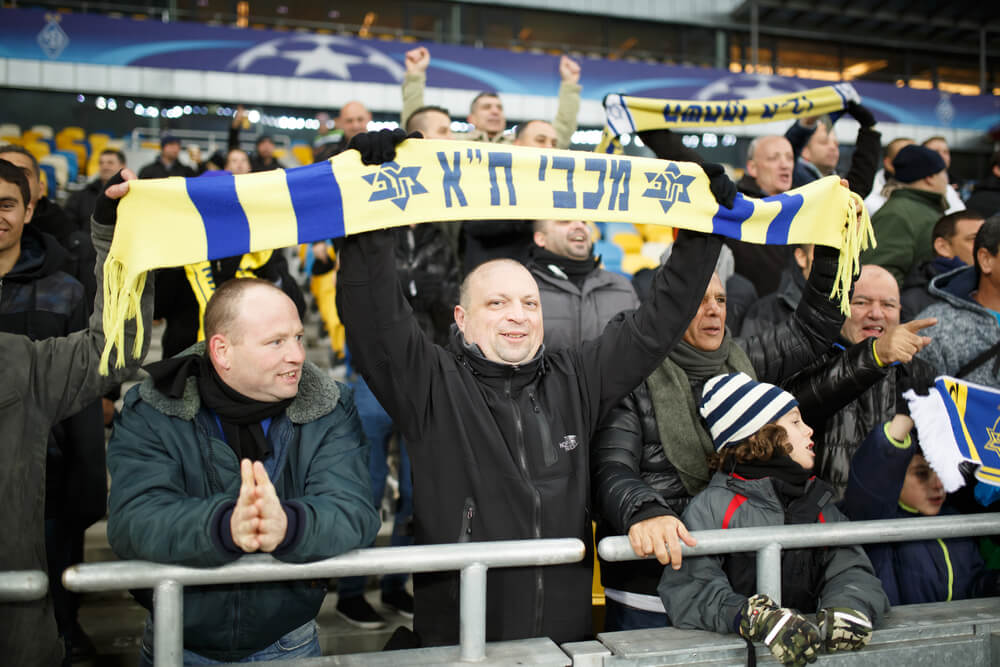This summer's European football championship in Germany passed peacefully, almost without any major incidents, although it attracted more than 2.5 million fans from all over Europe.
There were several hundred incidents, more than a hundred attacks on police officers, and slightly more than 8,000 attempts to illegally enter Germany, but none of this disturbed the final, very positive, security assessment of the hosts and UEFA.
The massive security preparations, involving up to 22,000 officers, marking the largest security operation since the federal police's establishment in 1951, are largely responsible for the peaceful completion of EURO 2024.
However, the championship in Germany will only serve as a temporary respite from the rapidly increasing trend of football hooliganism that Europe has been experiencing recently.
In this respect, the attacks by pro-Palestinian hooligans in Amsterdam on Israeli Maccabi fans this week seem like a new European reality, not last summer's "peaceful" championship.
Hooliganism is back
After a single night of violence against Israeli fans, police in Amsterdam arrested 60 hooligans, accounting for a third of the total arrests made during the Euro 2024 in Germany this summer.
Since the early 1990s, Europe has enjoyed peace in stadiums and streets. Hooliganism has largely returned to the streets of European metropolises in an even more brutal form, although not directly triggered by football rivalry.
"This new hooliganism has taken a foothold in political protests and turned sports into a battleground," Roland Benedikter from the Centre for Advanced Studies of Eurac Research Bozen/Bolzano wrote for LSE.
There were as many as 818% more anti-Semitic incidents in the Netherlands in the past year than three years ago
Since the Israeli operation against Hamas in Gaza, anti-Israeli hooligans harassing fans of Israel's Maccabi who had travelled to Amsterdam to watch the match against home team Ajax can be added to the list of hundreds of anti-Semitic incidents across Europe in the last year.
Even before these incidents, the Netherlands was at the top of Europe in terms of the sharp increase in anti-Semitic incidents. The Anti-Defamation League, which monitors anti-Semitic incidents in Europe, announced last September that there were as many as 818% more incidents in the Netherlands in the past year than three years ago.
According to the report, which also drew criticism for its excessiveness, anti-Semitic attacks in Britain have increased sixfold since 7 October last year, and incidents in France have increased by 1,000% compared to before the conflict between Israel and Hamas.
An ideal field for expressing frustrations
Therefore, the general increase in violent, politically motivated protests across Europe gave dying football hooliganism a new chance to flourish.
The violence in Amsterdam is confirmation that major football events are an ideal training ground for expressing frustrations, in this case pro-Palestinian hooligans against Israeli fans.
Dr Paul Davis, a senior lecturer in Sociology in Sports at the University of Sunderland, said that football has experienced a strong emancipation from the previous and extinguished wave of hooliganism.
"The culture of football has seen genuine change" - Dr Paul Davis
"The culture of football has seen genuine change. Women and girls are more accepted and comfortable at all levels, and some are celebrated. Gay men are no longer a no-no. Racism is arguably less virulent than before," said Dr Davis.
However, this "new" football is becoming a victim of the radicalised political climate in Europe. Apart from the societal dissatisfaction stemming from the lockdown during the COVID-19 pandemic, there are also economic issues arising from Russian aggression against Ukraine. These issues are now leading to extreme outbreaks of violence by immigrants and pro-Palestinian groups against Jews.
The riots between Liverpool fans and the police before the UEFA Champions League final in Paris two years ago are still vividly remembered. Even though the reasons for the conflict were not political, they primarily resulted from the fact that it was the first major European football final after two years of lockdown due to the COVID-19 pandemic.
Sports events—a channel for anti-Semitism
Speaking about the reasons for the new increase in football violence, Roland Benedikter first cited the "spirit of the times." "According to contemporary political pundits, we are living in an age of uncertainty. This is characterised by profound disruptions in almost every field of society."
The anti-Israeli protests of pro-Palestinian activists, which too often turned into anti-Semitic violent actions, have undoubtedly been the focus of violence on the streets of European capitals in the past year.
 Israeli clubs participate in elite European football and basketball competitions, making guest appearances in European capitals on a daily basis
Israeli clubs participate in elite European football and basketball competitions, making guest appearances in European capitals on a daily basis
High-risk football matches therefore represent an ideal framework for reviving such actions, especially their radical expression. In this respect, the mass violence in Amsterdam does not set a precedent, but it serves as a dangerous precursor to the recurrence of similar incidents, where the primary motive will once again be anti-Semitism rather than football.
Israeli clubs participate in elite European football and basketball competitions, making guest appearances in European capitals on a daily basis. After Amsterdam, each of them will have a much greater potential for violence than before.
There are already calls to relocate next week's football match between France and Israel.
Unlike their "fathers" from the 1980s and 1990s, the new generation of European football hooligans will not have fan motives for their violence, but political ones. This not only makes them more radical but also poses a greater threat to all European societies.